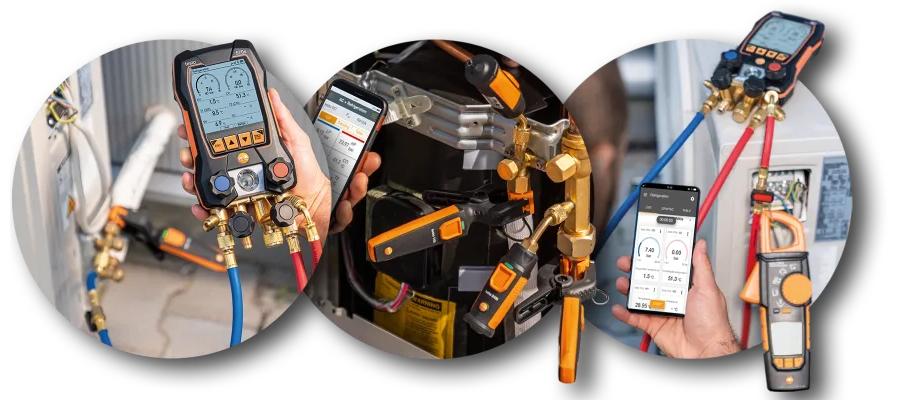
With the UK committed to reducing CO2 emissions to zero by 2050 (no doubt, you’ll have heard the buzzword ‘Net Zero’), the government needs to take drastic action. With plans to ‘decarbonise’ the nation, what does this mean for you and your trade?
Well, now could be a great time to diversify, gain an additional qualification and bolster your trade ready for the future. Let’s take a look at why.
It has been confirmed in a report released by the National Housing Federation, that homes in England are responsible for more carbon emissions than all of the cars in England combined. That’s 25 million homes producing more than 58 million tonnes of CO2 every year, equalling the emissions of 28 million cars. With 27 million cars in England emitting 56 million tonnes of CO2 every year, clearly there is a need to reduce the emissions contributed by homes across England. Source: https://www.greenmatch.co.uk/blog/gas-boiler-ban
There are already plans in place to combat these high-level household CO2 emissions, namely published in the Heat and Buildings Strategy, first released by the government in October 2021.
A key part of the strategy was the announcement of a £450,000,000 Boiler Upgrade Scheme to support households who want to make the switch to low-carbon heat pumps with grants available of up to £7,500 per household, promoting clean heat alternatives from low carbon technologies. Source: https://www.gov.uk/government/publications/heat-and-buildings-strategy
In addition, the government is tapering the quantity of new gas boilers being installed - an 80% reduction that is to be met by 2035. This certainly means that clean heat alternatives such as heat pumps will become prevalent in the coming years. Source: https://www.theecoexperts.co.uk/boilers/uk-gas-boiler-ban
Heat Pumps
Heat pumps are seen as a key technology for achieving net zero emissions from domestic heating, as such the government has a target of 600,000 installations per year by 2028.
Heat pump installations jumped by 20% in 2023 due to the success of the government’s Boiler Upgrade Scheme. According to the The Microgeneration Certification Scheme (MCS), the total number of certified heat pumps installed across the UK had now surpassed 200,000, after nearly 40,000 were installed last year. Source: https://www.businessgreen.com/news/4162157/encouraging-uk-heat-pump-installations-grew-cent-2023
The Chief Executive of the Heat Pump Association, Charlotte Lee, said the increase in heat pump installations illustrated consumer demand for the technology was growing fast:
"We expect this number to continue to rise in 2024 and beyond and the supply chain is gearing up to deliver. With consumer demand for heat pumps rising, we encourage all heating engineers to look ahead and invest in heat pump installation training to support the anticipated deployment and to future proof their business."
As a heating engineer, without doubt you’ll be used to commissioning boilers and conducting tests necessary to make sure that traditional carbon-fuelled heating appliances are operating as efficiently - and more importantly safely - as intended.
Be assured that testing heat pumps will not be outside of your technical skill-set; in fact, some of the tests are very similar to those you conduct now (think flow and return temperature checks and pressure testing), however here’s the crux: heat pumps also contain refrigerant.
Refrigerants are the lifeblood of heat pumps. They circulate within the system, absorbing and releasing heat, enabling the transfer of heat energy. In fact, every heat pump uses either chemical or natural refrigerants.
UK legislation deems it necessary to gain the correct training so that “all personnel carrying out installation, commissioning, decommissioning, repairing, maintenance or servicing of stationary refrigeration, air-conditioning or heat pump equipment that contains or is designed to contain F-Gas refrigerants must hold the relevant designated qualifications stated in regulation 2067/2015.”
Your first thoughts are likely one of the following, and will probably be geared towards the cost of investing the qualification:
- How much is all this going to cost me?
- How much time do I need to give in training?
Becoming F-Gas certified is a low-cost investment; both financially and in terms of your time spent training. F-Gas training, certification and registration is available for under £1000 and qualification takes under 1 week.
Based on the facts and figures provided, it makes little sense debating this avenue of diversification. Furthermore, in your trade, there are currently around 120,000 Gas Safe registered installers in the UK, but only 23% of these engineers are trained to install heat pumps. Source: https://housingevidence.ac.uk/heat-pumps-in-the-uk-state-of-the-conversation
And so, now certainly is a great time to diversify your services, gain an additional qualification and bolster your trade ready for the future. And we’re doing the same.
Chris Fox, Business Development Manager at Test-Meter Group, said that the company is among the very first in their market to become ready to support a new wave of heating and refrigeration engineers:
“We’ve always been at the forefront in supporting you, the heating engineer, by offering cost-effective test and measurement solutions from the likes of Testo, KANE, Anton and TPI, with products being available for collection the very same day, or nationally by 12-noon the very next working day”.
“Typically these products included Flue Gas Analysers and kits, but more recently, we’re investing the time training our staff and holding stock of specific heat pump test kits and products conceived by manufacturers with the merging of both plumbing/heating and refrigeration markets.”
“In addition, over the last year, we’ve gained approval as registered service partners for Testo, TPI and Anton, and so we now have the capability to offer local and national engineers a cost and time saving annual calibration service for their test and measurement equipment.”
For any further information about test and measurement equipment for the heat pump market, including heat pump test kits, temperature gauges, pressure testers (manometers), refrigerant manifold gauges and accessories, we welcome your call on 0113 248 99 66 or enquiry through our online form.
